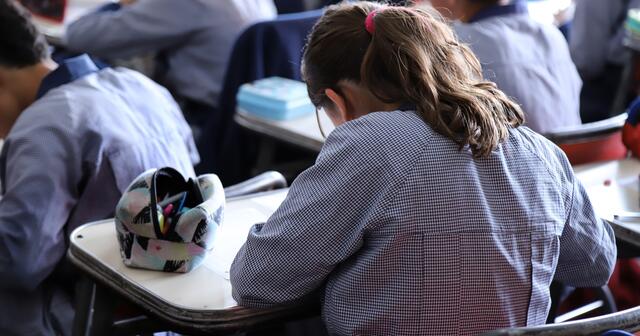

 By Molly Macek
By Molly Macek
Families across the country are gaining access to more education options, thanks to new laws that allow tax dollars to follow students to the school of their choice. But not in Michigan, where families are limited in their schooling options due to a discriminatory amendment in the state’s constitution.
The state’s so-called Blaine Amendment was adopted in 1970 and aimed to prevent private schools, most of them Catholic, from competing for public funds with conventional districts. The Council Against Parochiaid, backed by teachers unions, took advantage of anti-Catholic bias to gain support for a ballot initiative that led to the amendment’s enactment. As a result, Michigan families too poor to pay for private school are left without any support. In 2021, the Mackinac Center for Public Policy filed a lawsuit against the state on behalf of five such families.
In addition to Michigan, 37 other states originally adopted Blaine amendments that prevented public dollars from funding parochial schools. But many states can no longer enforce the Blaine provisions in their constitutions due to the U.S. Supreme Court’s ruling in Espinoza v. Montana Department of Revenue in 2020. In this case, the court found the Montana Constitution’s prohibition of state aid to families who send their children to private religious schools to be discriminatory. But the ruling does not apply to Michigan – its Blaine Amendment is slightly different in that it prevents public funds from following students to any private K-12 school, not just a religious one. Even though most of the state’s private schools were religious when the amendment was enacted, the U.S. Court of Appeals for the Sixth Circuit did not find the amendment to be discriminatory.
That means Michigan students – especially those from low-income families – still face limited education options, even when their current school is failing them. This is despite federal tax reform that expanded the use of 529 college saving plans to K-12 private school tuition. Parents in most states can now use their tax-free savings accounts to offset the cost of a private K-12 education. But in Michigan, the anti-aid amendment prevents parents from getting state tax benefits when they use their 529 savings for private K-12 tuition.
While the state bans public funds for private K-12 schooling, it allows students to use tax dollars to attend the private colleges or private preschools of their choice. Such costs are regularly included in the state’s budget, and no one seems bothered by it. This inconsistency should raise a red flag among taxpayers who believe all students – especially those in the critical K-12 schooling years – should have the opportunity to choose the school that works best for them.
Students across the state continue to lag behind the national average in reading and math. And they have a long way to go to recover from pandemic-era school closures. Many of these students would be better served by education options outside the conventional public school system. But until lawmakers afford K-12 students the same options as preschool and college students, they will keep failing those who are most in need of support.
Permission to reprint this blog post in whole or in part is hereby granted, provided that the author (or authors) and the Mackinac Center for Public Policy are properly cited.
Get insightful commentary and the most reliable research on Michigan issues sent straight to your inbox.

The Mackinac Center for Public Policy is a nonprofit research and educational institute that advances the principles of free markets and limited government. Through our research and education programs, we challenge government overreach and advocate for a free-market approach to public policy that frees people to realize their potential and dreams.
Please consider contributing to our work to advance a freer and more prosperous state.

Donate | About | Blog | Pressroom | Publications | Careers | Site Map | Email Signup | Contact